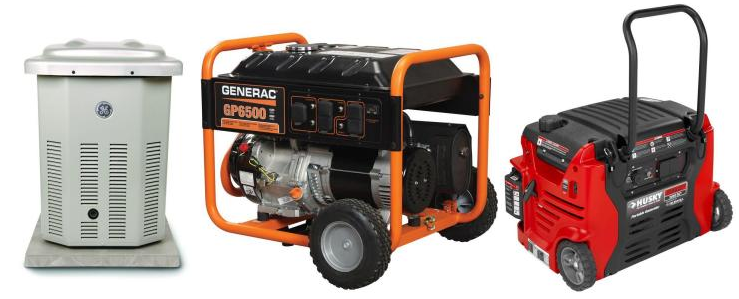Home Generators

A fuel-powered device that can supply electricity to your house during power outages is referred to as a home generator. There are two main types of generators: permanently installed or standby generators, and gasoline-powered or portable generators. When it comes to having a generator for your home, it may be important that you have enlisted the help of a technician who has completed something similar to this power generation training so it can be correctly fitted into your home without experiencing any further problems.
For a long term emergency one should consider standby generators. They typically operate on natural gas or liquid propane. A fixed standby generator is already connected to both the house wiring and the fuel source. Therefore, it can start immediately either by push of a button or automatically depending on the setting. Automatic systems include an auto transfer switch. It can sense a power outage, isolate your electrical wiring or designated emergency circuits from the grid, and start up the device. When grid voltage is restored, such a system will connect you back to the utility lines and will turn itself off. Permanently connected standby systems offer power levels higher than portables, but should be installed by trained professionals with the correct equipment, such as Lineman compression tools, to link it into your existing electrical system. Home generators are important for every household so that you are still able to have access to power in the event of an outage. Did you know that understanding your standby power needs is just as important in these situations so that you are able to buy and install the best generator for you and your home? This is because you may never know when you might need one so it could be in your best interest to make sure you are prepared all year round.
Gasoline-powered, portable generators are typically smaller in size and power capacity than permanently installed generators. They are designed so that corded electrical devices may be plugged directly into them. Portable gas models are relatively cheap.
Aside from wattage and cost, other things to consider are the duration of time you may need emergency power, fuel availability, and convenience of use.
Portable and standby generators produce dangerous carbon monoxide (CO) gas, which can be deadly if inhaled. Detectors should be installed in case CO is accidentally released into the home